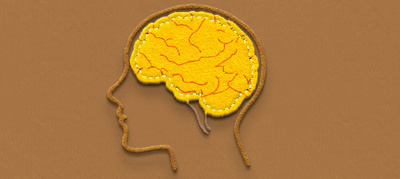A patient shares his experience of living with the often-misunderstood condition.
“My epilepsy started early in 2015. I had my first seizure at 14 years old, when I was in Grade 8. It started with short episodes of fainting, but being a teenager, I was frustrated when my mother took me to our GP and later to a series of different specialists.
“I’ve gone through many tests, electroencephalograms (EEGs), magnetic resonance imaging (MRIs), and numerous blood works. My epilepsy was difficult to pinpoint and diagnose. At first, I was in total denial about my ‘fits’. Later that year I was diagnosed as potentially suffering from epilepsy, but no doctor could tell for sure. Yet it gradually became worse.
“In August of that year, I had my first grand mal seizure [which causes unconsciousness and violent muscle contractions]. It gave everyone such a fright. My parents did what they could, taking me to several doctors who tried a variety of medications. Still, nothing worked. None of the doctors we visited knew the way forward. Meanwhile, I couldn’t study effectively and by the end of Grade 8 the Department of Education granted me an exemption from exams.
“By the time I entered Grade 9, I had lost most of my friends, as I’d not been able to maintain social relationships. My seizures now lasted for five to 20 seconds at a time, mostly at night, with the occasional grand mal seizure inflicting terror in our home. There were nights that I had a seizure every three to five minutes. My mom was concerned that I wasn’t going through the normal sleep cycles, including REM sleep, which meant I was also sleep deprived.
“My marks plummeted to 23%. With no friends, lots of rejection, having bad social skills, and academic challenges, my high school memories – or those I can remember – were not pleasant at all. Our family went through some very bad days, weeks, months. I became exceedingly aggressive and my interactions with my sisters left bone-deep scars. I was like a caged animal in survival mode, 24/7.
“Eventually a friend told my mother about Dr James Butler, a neurologist at Mediclinic Constantiaberg. To cut a long story short: in March 2017 this amazing doctor identified the specific area where the epileptic seizures were active; the frontal lobes of my brain. After having three necessary brain surgeries, performed by Dr Roger Melvill, a neurosurgeon at Mediclinic Constantiaberg, I have been seizure-free since April 2017.
“Today I’m extremely grateful. I’ve become a stronger and more caring person, enjoying life to its fullest. Last year I completed by first Cape Town Cycle Tour. By the end of this year, I’ll be participating in Mossel Bay for Half Ironman – a dream I never thought would come true! I’m also a third-year BCom (Management Accounting) student at North-West University (NWU).
“Earlier, I just could not speak openly about my epilepsy – but now I want to. I’m also proud to be on a central campus committee involved with community projects for the underprivileged. I celebrate every day that I have the privilege of being a student, working towards my future. I’d also like to encourage other people with epilepsy to live life to the fullest. Take your medication and know that you are also worthy of chasing your dreams. Do not ever lose hope!”
What is epilepsy?
Epilepsy is a neurological condition characterised by unusual electrical activity in the brain causing unprovoked seizures. According to Epilepsy South Africa, it affects one in every 100 people (±500 000) in South Africa. In about two thirds of cases the underlying cause of epilepsy is unknown (idiopathic epilepsy). In the remaining cases, the underlying causes can be identified (symptomatic epilepsy).
The causes of symptomatic epilepsy include:
- Head injury
- Birth injury (such as lack of oxygen)
- Alcohol and drug abuse
- Ageing
- Metabolic or biochemical disturbances or imbalance.
Multifaceted treatments
As there are many forms of epilepsy, many different causes and many ways seizures manifest, it’s simplistic to think of it as a single condition, says Dr Butler. Instead, he refers to it as a group of conditions, known as the epilepsies.
According to Dr Butler, around two thirds of epileptic patients can be managed with anti-epileptic drugs. Half of these patients will be able to be weaned off medication over time. This leaves a third of people who do not respond adequately to anti-epileptic drugs and need alternative treatment. A neurologist will then consider surgery.
“There are two other forms of treatment that we sometimes employ in cases where medication is ineffective and surgery is inappropriate: the ketogenic diet or the modified Atkins diet,” says Dr Butler. “These diets force the body to burn fats instead of carbohydrates. The liver converts the fat into ketone bodies, which replace glucose as an energy source in the brain. This state of ketosis can reduce the frequency of seizures.”
Dr Butler adds that new epilepsy treatments are constantly being researched and are as wide ranging as the epilepsies themselves. He stays at the forefront of the latest research and, together with a team of healthcare providers specialising in epilepsy, ensures patients receive the best care available.
Eruc Claassen
Further publications on the topic
Doctors 1


